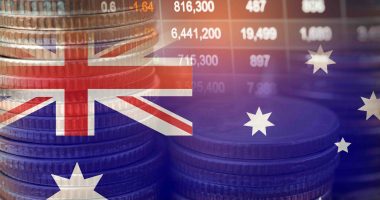The really big story that jumped out at me this week – and don’t worry, we’ll get to the Australian landscape soon – came not from down under, and not from the US, but rather from Europe.
Case in point: it looks like the European Central Bank (ECB) could actually beat the USA’s Federal Reserve in being the first major central bank to issue a rate cut. The Bank of Switzerland issued a surprise -25bps rate cut only last week.
This EU surprise would surely come as a welcome but significant shock to most of the western financial commentariat wholemeal – including this journalist, who has long been suggesting the US Fed will be first, and that Australia will follow suite.
So why does it look like the ECB might cut first?
In short, Eurozone inflation is just pretty damn good.
The country’s March CPI inflation recently clocked in at 2.4%, below expectations for 2.6%.
This puts it firmly at the lower end of its 2-3% target inflation band, the same target that the US, Australia, and other peers are trying to meet.
ING forecasts a June rate cut for the ECB whereas Nordea expect the first Fed rate cut to come in September.
While the market is still hopeful the US Fed will cut in June (and some are still holding onto May,) strong jobs data from the US continues to throw into question the pace of Powell’s rate cut schedule – as does a still fairly resilient US consumer; and a recent expansion in US manufacturing (as well as rising input costs.)
Talking of rising input costs, we have to talk about Brent Crude.
The blood of the Australian economy (and that of most other countries) has now hit $US90/bbl, with ANZ seeing a rise to US$95/bbl for Brent in Q2CY24.
With household spending data in Australia showing an increase in transport – of which recently higher fuel prices are absolutely a factor – high crude prices threaten to keep interest rates higher for longer, given their direct upward lift to inflation data.
In Australia, the good news is the RBA didn’t even consider raising rates in its latest minutes. However, the inflation story remains sticky – Oxford Economics says there aren’t enough houses to meet immigration demand, and NAB says a housing supply fix is far off. That means higher rents (services) are to remain sticky for Australian core inflation.
Elsewhere, Orso Partners has told a NY conference Australia is a terrible place for short-heavy hedge funds to operate; that small-to-medium businesses are spending 25% more on R&D than large firms, and that Australia should prepare for 20+ year megadroughts as climate change worsens. That last point has its own long-term implications for food inflation.
Here’s other headlines that caught my eye this week:
Australian Economy
- Australians should not expect a housing supply fix any time soon: NAB
- SME businesses in Australia spending 25% more on R&D than large firms
- Australia car sales hit record high in Q1 CY2024: FCAI vehicle lobby
- Oz should prepare for 20Y+ megadroughts as climate change worsens: ANU
- The price of mining iron ore expected to rise in CY24 per Rio Tinto forecasts
International Economy
- Headline Eurozone inflation hit 2.4% in March; lower than 2.6% expected
- ING sticking to June rate cut forecast for the ECB
- US jobs come in over 180K in March despite expectations below 150K
- The price of raw materials for US manufacturers is rising somewhat
Commodities
- Brent Crude hits US$90/bbl in bad sign for disinflation trajectories everywhere
- Copper hits a 15 week high in Week 14 of 2024; golds hits ATH at US$2,305/oz
- ANZ sees Brent Crude rising to US$95/bbl through Q2CY24
- Crude prices are rising right ahead of the US summer driving season
Australian Equities
- Cettire extends losses as Texas confirms it asked for a please explain on tax duties
- Westgold dropped 13% after revising downard gold production guidance
- RBC Capital Markets says Regis Resources’ McPhillamys gold mine mightn’t get there
- ANZ hit by US$0.5M fine from US commodity futures regulator
- Lithium Energy & Novonix to list spin-out company Axon Graphite
International Equities
- VIX index at highest level since November
- Taiwan’s TSMC – which NVIDIA hinges on – resumes manufacturing post-earthquake
- Apple ditches EV car plans and is now reportedly developing home robots
- Dell hits a fresh all time high as microchip fever persists
- Norwegian Sovereign Wealth Fund finger wagging Rio over deforestation
- S&P500 energy sector posted best close midweek since 2014: Factset
- Musk’s behaviour is putting people off the Tesla brand: Caliber








